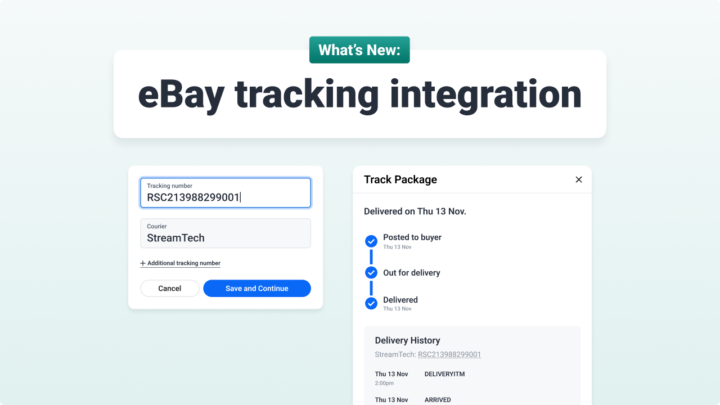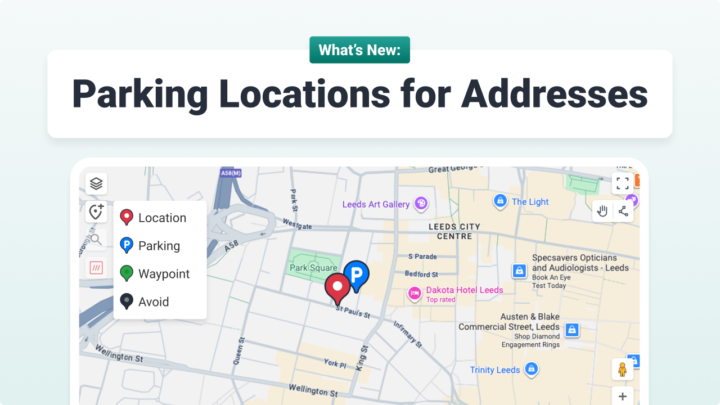The UK’s e-commerce market is set for significant growth, with 62.1 million online shoppers projected by 2025.
For retailers, establishing a strong presence on leading UK marketplaces such as Amazon, Ebay, Etsy, Temu and ASOS Marketplace offer substantial opportunities for growth.
We attended Linnworks’ Academy event recently and the message was very clear. Marketplaces are where your customers are, therefore, as a retailer, you need to be there too.
There were a number of sessions available at the event about some of these marketplaces enabling UK-based businesses to expand into international markets with very little financial and operational risk.
Those marketplaces offered a plethora of innovative shipping and logistics options either in-built or available through third-party providers, including the likes of Walmart Marketplace and Amazon Multi-Channel Fulfilment.
That’s especially important when you consider the message coming from the Linnworks Academy was the ‘need for speed’ and multiple (and flexible) shipping options when it comes to minimising cart abandonment, which was estimated at over £38 billion per year in lost sales.
One statistic that stood out during the event was that retailers using Linnworks listed their products on just over five marketplaces on average, with many of the various panelists during the event predicting that this will increase to 10 over the next few years.
A retailer who won an award at the event listed products on more than 50 marketplaces. That’s an awful lot of management and complexity!
Which marketplace?
There are literally hundreds of marketplaces that retailers can access (depending on your definition of a marketplace of course).
What is clear is there are marketplaces that will be applicable to your retail operation with many specialising in a specific niche (B&Q Marketplace for instance), a specific region (or regions), or business model, i.e. business-to-business or business-to-consumer.
The question is, which marketplaces should you be focusing on and which ones are up-and-coming?
This Linnworks guide outlines the top, as well as emerging, online UK marketplaces businesses should look to sell on, comparing fees and offering advice on listing optimisation, logistics, and future-proofing strategies.
The best UK marketplaces to sell on in 2025
Here are some established and emerging marketplaces in the UK, let’s focus on the established heavyweights to start with before moving onto some others highlighted in the report that you should consider.
Amazon
Best for maximum reach and operational efficiency
In the UK alone, Amazon attracts over 400 million monthly visitors which also makes it the leading ecommerce platform!
We’ve already touched on logistics and fulfillment earlier in this article, but initiatives like Fulfillment by Amazon (FBA) and Amazon Multi-Channel Fulfilment (MCF) can streamline your operation significantly and built trust with consumers. At the same time, Amazon Prime continues to grow and can drive increased conversion rates and strengthen brand trust.
Marketplace fees and commission: Offers Individual (£0.75/unit) and Professional (£25/month) plans. Commissions typically range from 8-15%. Additional FBA and other fees may apply.
It is worth noting that if you’re selling on Amazon and self-delivering products, then Stream does have an integration with Amazon for in-house logistics operations.
eBay
Ideal for unique or pre-owned products.
With half the number of monthly visitors in the UK (200 million), eBay UK is the second largest online marketplace.
eBay offers both fixed-price and auction-style listings. It has a lower barrier to entry and a diverse product range. eBay’s strong buyer protection policies helps build trust for consumers, which invariably leads to higher engagement and a greater chance of repeat purchases.
As with Amazon, eBay also offers retailers shipping services. eBay Fulfillment delivers a fully tracked service with full seller protection for delivery related defects coupled with multi-channel capabilities.
And, for those retailers that want to use (or experiment with) international expansion (diversification?), eBay’s shipping programme aims to make international fulfillment as easy as domestic.
Marketplace fees and commission: Private sellers get free listings (up to 300-400), with a 12.8% final value fee + 30p per order. Business sellers have varying listing fees and final value fees (10-13%) depending on the selling category.
Wayfair
Ideal for businesses with dropshipping capabilities in furniture and homewares.
Wayfair specialises in home goods, furniture, and décor, attracting millions of global customers, including in the UK. Its dropship model allows sellers to set wholesale costs, with Wayfair managing retail pricing, shipping, and customer service.
TikTok Shop
Best for trend-driven brands converting video engagement into sales.
Experiencing rapid growth, especially among Gen Z and millennials, TikTok Shop was often quoted at the Linnworks Academy event as the channel to watch (quite literally).
Many of Stream’s furniture retailers are also using (and exploring) TikTok Shop as their ‘next big thing’.
Integrates shopping directly into the app, offering low commission rates and built-in audience targeting. Marketplace fees and commission: No monthly fee. Commissions vary by category (e.g., 4.86-14.58%). A transaction fee of 3.78% applies to the total order.
Etsy
Best for independent makers, artisans and vintage sellers seeking a niche audience.
Etsy focuses on handmade, vintage, and craft items, attracting over 37 million monthly visitors in the UK.
Marketplace fees and commission: £0.16 listing fee (lasts four months). Commissions are 4-6.5%. Optional Etsy Plus subscription (£7.99/month) and Offsite Ads fees (12-15%) may apply.
ASOS Marketplace
Best for independent fashion labels and vintage clothing resellers.
ASOS Marketplace hosts over 900 independent boutiques, appealing to fashion-forward consumers.
Marketplace fees and commission: No monthly fee, but a 20% commission on total sale price (including shipping).
OnBuy
Ideal for general merchandise retailers seeking an Amazon alternative.
OnBuy is a rapidly growing UK-founded marketplace with a “seller-first” model and transparent fees.
Marketplace fees and commission: Monthly plans from £25-£249. Commissions are 5% for consumer electronics and 9% for all other categories.
Vinted
With over 105 million global users, Vinted is primarily focused on second-hand fashion and home goods, while continuing to expand its product categories. Appeals to eco-conscious, price-sensitive shoppers.
Marketplace fees and commission: Free listings. Optional paid promotional tools are available. Buyers typically cover shipping and a “Buyer Protection Fee” (3-8% + £0.30-£0.80).
Optimising listings & navigating challenges
Listing optimisation
Use clear, high-resolution images that perfectly showcase the product(s), concise benefit-led descriptions, and localise content (e.g. UK spelling).
Leverage keyword research specific to each marketplace and use data/analytics tools to monitor performance and refine listings.
Regulatory & logistical challenges
Register for UK VAT if required.
Meet high delivery expectations by using fulfilment programs or by optimising your deliveries using a Transport Management System if you deliver goods in your own vehicles.
Clearly communicate with your customers throughout the buying and shipping cycle, and offer clear shipping timelines and return policies.
Utilise multichannel management platforms, such as Linnworks, to centralise inventory, orders, and fulfilment, automating tasks and ensuring consistency throughout the supply chain.
Future-proofing your strategy
Stay agile by considering evolving consumer expectations:
Sustainability
Highlight eco-conscious values, sustainable materials, and ethical sourcing to appeal to UK shoppers.
Social commerce
Invest in short-form video and influencer collaborations on platforms like TikTok and Instagram.
Mobile-first shopping
Optimise your listings and product pages for mobile viewing, as most UK e-commerce traffic is from smartphones.
AI & personalisation
Use AI-driven tools for product recommendations and dynamic pricing.
Omnichannel consistency
Maintain consistent branding and customer service across all sales channels.
Conclusion
Strategically choosing the right UK marketplace(s) can drive significant revenue growth.
Each platform, from Amazon and eBay to Etsy and emerging players like OnBuy, Vinted, and TikTok Shop, offers unique opportunities.
By optimising listings, managing logistics, and adapting to trends like social commerce and sustainability, retailers have an opportunity to thrive on the UK’s top e-commerce marketplaces.
Linnworks have created an apt quiz to help businesses identify which marketplace(s) they should be utilising.
Running Linnworks and delivering goods and products in your own fleet?
Linnworks is fully integrated with Stream. Follow the link to learn more about the Linnworks integration.



